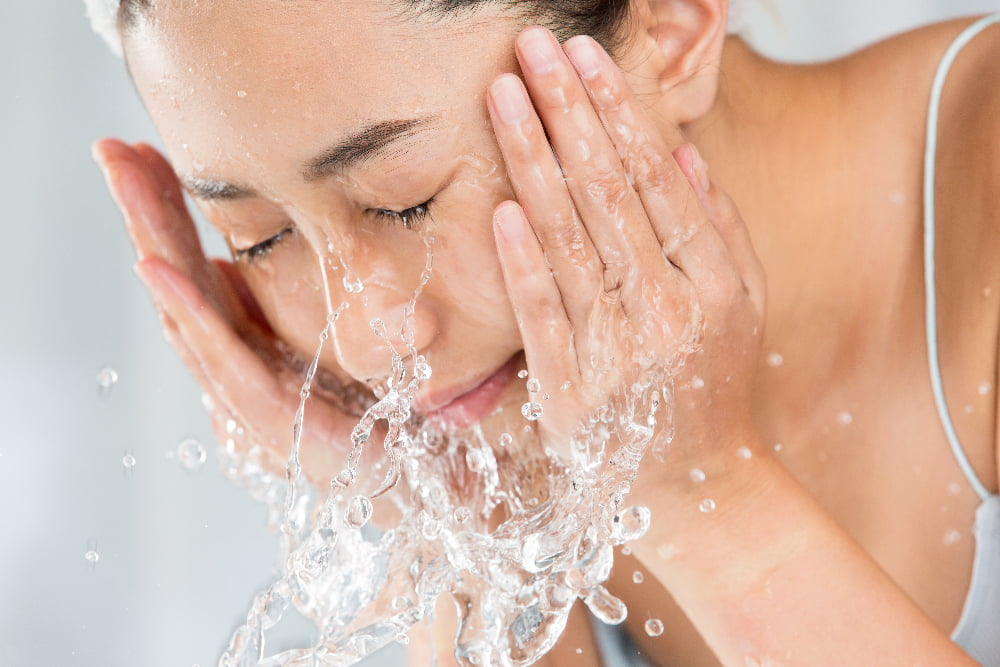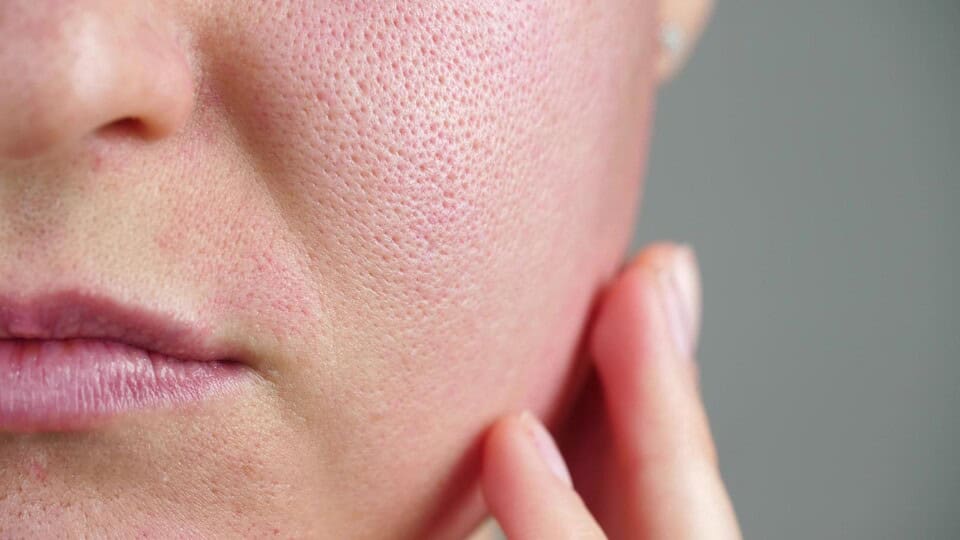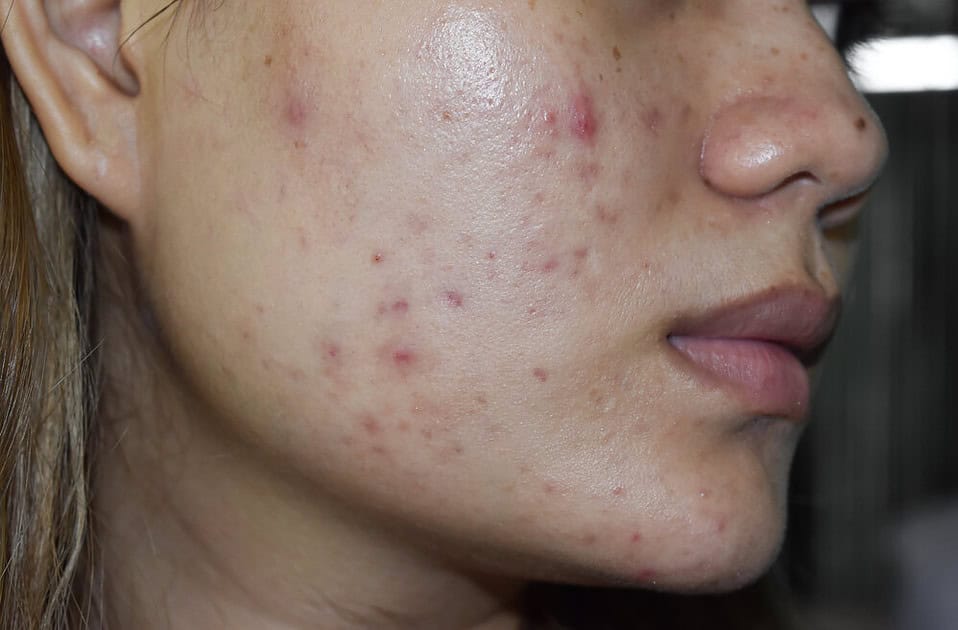
Treatments for Acne That Promote Clear, Healthy Skin
M
any people struggle to keep their skin healthy and clear of acne, and it’s not always easy to figure out what’s causing it. But there are many ways to maintain healthy, clear skin. But first, let’s look at what acne is and why it affects the skin the way it does. Then, we’ll take a look at some of the most effective preventative measures and acne treatments you can adopt.
What is Acne
Acne is a disease of the sebaceous glands surrounding hair follicles. Hormones called androgens, and insulin-like growth factors are secreted in the body as part of the growth process. They can also be secreted for other reasons in adulthood. The presence of these factors causes an increase in oil gland (sebum) activity, which triggers a rupture of the hair follicle and blockage of the opening of the follicle.
The blockage, combined with the increased production of sebum, causes bacteria to accumulate in the follicle. This results in noticeable swelling and the telltale pimples and inflammation identified as acne.
Acne is treated medically with topical treatments of retinoids and antimicrobials, and systemic treatments of antibiotics, oral contraceptives and isotretinoin. Avoiding the conditions that contribute to your acne should be your first priority. Let’s look at some of the ways you can alter your lifestyle to reduce the likelihood of acne.
Avoid Harsh Environments
One of the biggest contributors to poor skin health is exposure to extreme climates. Being aware of different environmental factors where you live can help you care for your skin properly.
Sunlight
Extended sun exposure can be very damaging to your skin. If you are out in the sun frequently, this damage can be compounded over time, leading to wrinkles and spots, as well as an increase in the risk of skin cancer.
The best way to avoid sun-related skin damage is to wear appropriate clothing outside, including hats, sunglasses, and clothing that covers your skin. You should also apply sunscreen to your face when you are outside for extended periods.
Dryness
Very dry climates, particularly those with cold temperatures, can harm the skin on your face. Dry weather can dehydrate your skin and lead to itchiness and a buildup of dead skin cells, contributing to acne. In dry environments, be sure to moisturize your skin daily to keep it healthy.
Pollution
People living in big cities with high pollution levels can also experience poor skin health from pollutants in the air that settle on the skin and clog pores. Airborne debris can also cause your skin to age and wrinkle faster. The best way to battle skin damage from pollution is to use a mild skin cleanser on your face twice a day to keep it clean.

Maintain A Healthy Lifestyle
Many aspects of your general health can impact your skin. Many people don’t realize how many different factors can cause or exacerbate acne problems.
Hydration
Dehydration can contribute to acne breakouts since dehydrated cells are more likely to dry out and clog pores. Make sure you drink plenty of water to keep your skin as healthy as possible.
Healthy Diet
You may not expect what you eat to influence the health of your skin, but studies have shown that processed foods and foods high in sugar can cause breakouts. Eating healthier foods, including complex carbohydrates and fruits and vegetables high in antioxidants, is not only good for your overall health but for your face as well.
Reduce Stress
Studies have also shown a strong link between stress levels and acne. Managing stress and staying well-rested can improve your acne symptoms and help maintain healthy skin. Make sure you are getting enough sleep, exercising regularly and taking rest as needed to help you de-stress.
Skincare Products
While there are many skincare products on the market to help you keep your skin clear, some of them may actually cause more problems. Our skin produces natural oils that protect it and keep it hydrated. Harsh products can strip the skin of its natural oils.
This causes your body to produce more oils than it needs, leading to increased acne from oil buildup. Using milder, natural products will ensure you don’t disrupt your skin’s natural processes. Below are some further tips on using skin care products properly for clear, healthy skin.

Practice Good Makeup Hygiene
It’s important to wash your face well and remove makeup before going to sleep at night. Makeup can clog your pores and cause your skin to produce excess oil, so removing it allows your skin to breathe while you are sleeping.
When purchasing makeup, avoid oil-based products that could worsen acne problems. You should also clean your makeup brushes and applicators regularly to avoid a buildup of oil or skin cells that could lead to acne issues.
Look At Product Labels
Using cleansers and toners on your skin to help fight acne is a good idea as long as they have the right ingredients. As mentioned, try to avoid oil-based products or products containing alcohol. Instead, look for skincare products that contain glycolic acid or salicylic acid, which help clear out pores without stripping the skin of natural oils.
Seek Professional Help
Whenever you make changes to your skincare routine, it’s important to remember that it takes time to see results. Our bodies don’t make changes overnight, so be sure to maintain your routine and allow time to see results. If you don’t see results after a few weeks, it may be time to seek help from a professional dermatologist to diagnose your skin’s care needs accurately.
Nirunda Clinic has an in-house dermatology specialist to prescribe appropriate acne treatments. We also provide a variety of laser, injection, and light therapy treatments that can help your skin fight off persistent acne.
Reduce Acne Scars
Some people may have scars from previous acne, even after developing a good skincare routine to prevent further acne breakouts. You don’t have to live with acne scars forever, though.
Nirunda Clinic offers many solutions to acne scarring, including laser treatments, chemical peels, and dermal fillers. Contact us by email at inquiry@nirundaclinic.com or by phone at +66 (0) 2 160 4191 to learn more about our acne treatments.








